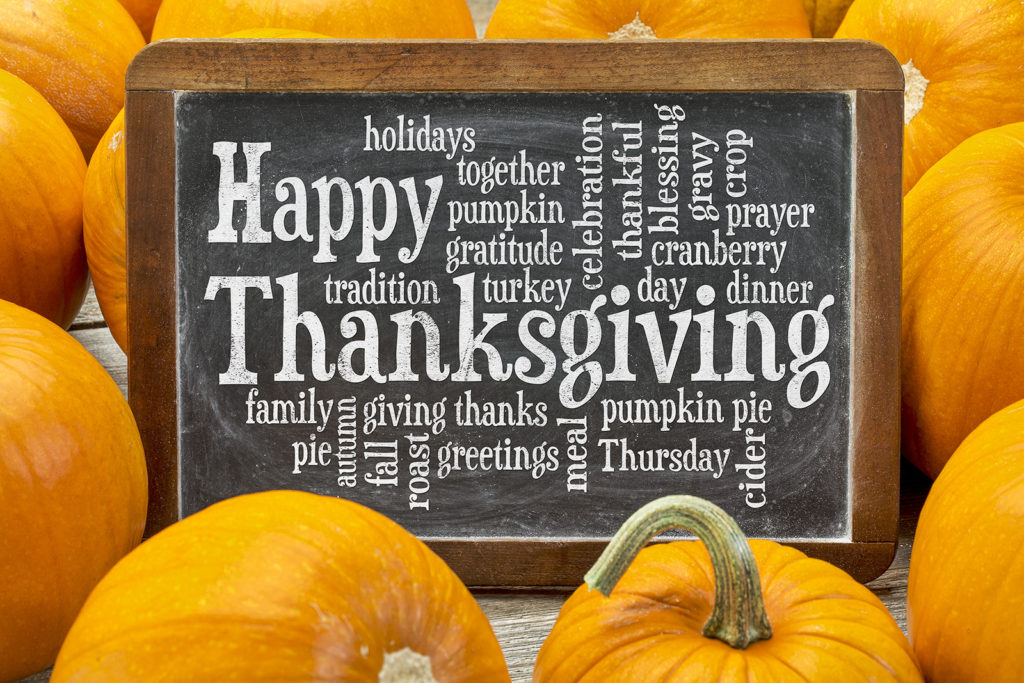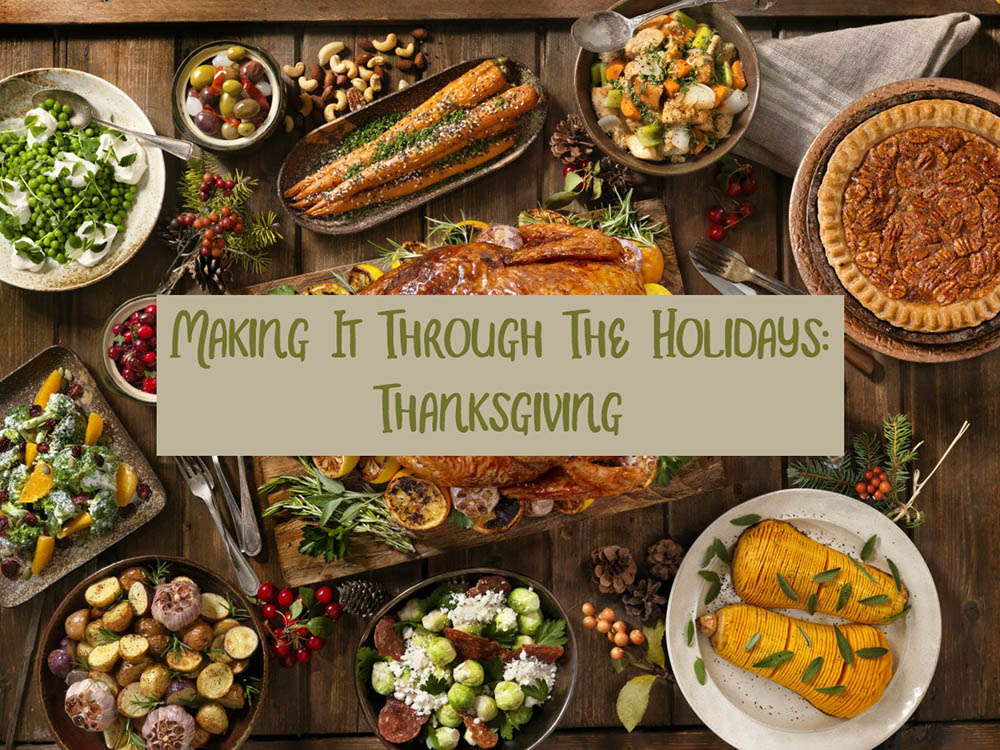Thanksgiving to me marks the official start of the holiday season! Thanksgiving is a time to reconnect with family and friends and give thanks over, typically, a large meal. However, holidays can be a very challenging time for some, such as the stress it may have on finances, requesting time off from work, traveling, spending time with distant relatives, or simply family. Now factor in an eating disorder or recovering from an eating disorder. You can understand how holidays, particularly Thanksgiving can cause added stress. So how do you make it through Thanksgiving if you are in recovery from an eating disorder, struggling with an eating disorder, in treatment, or simply disordered eating?
First, acknowledge that this may be a hard time for you. It is okay to struggle or feel however it is you feel. I encourage everyone to talk with their dietitian and/or therapist before the holidays so you can plan ahead and discuss any fears. Maybe you do not have a treatment team, then speak with someone you trust and who can support you, or perhaps this blog can give you some guidance. Thanksgiving conversation is often surrounded by food talk, diet talk, and exercise. You will hear “I’m definitely going to need to work out after eating this”, “I won’t need to eat for another week”, or “I should not have eaten that much”. This will happen. Set that boundary that other people may be (unknowingly) triggering, and remember “I do not have to let it dictate my behavior or my recovery”.

Thanksgiving and Eating Disorder Recovery
Now, how do you fit Thanksgiving dinner (or lunch) into your meal plan? Plate your meal the way you plate all of your meals ensuring you have protein, carbohydrates, fats, vegetables/fruit, and dessert (if you want). In addition, it is okay to over-indulge! Here are a few steps you can follow:
- What protein or meat option(s) do you genuinely enjoy or prefer? Plate that.
- What carbohydrate option(s) do you genuinely enjoy or prefer? Plate that.
- What fat option(s) do you genuinely enjoy or prefer? Plate that. If it is gravy or dressing you can more easily see this as your fat. If it is cheesy potatoes, a casserole, etc., then perhaps it is already mixed into the dish.
- What vegetable(s) or fruit(s) do you genuinely enjoy or prefer? Plate that.
- Are there multiple food items within the same food groups that you would like? Such as corn casserole, sweet potatoes, and regular potatoes? You do not have to be restricted to just one. You can plate a smaller portion of all of the above!
- If you are struggling, plate your meal like you would for a loved one.
- Practice mindfulness throughout the meal. Paying attention to your hunger/fullness cues.
- Now, it’s dessert time. Am I hungry for dessert or does it just sound good? Go for it! Plate a piece of dessert and mindfully eat. Now, If I have dessert will that set me over the edge and cause me to compensate? If yes, perhaps you save the dessert for later.
- Remind yourself, it is one meal out of the entire year. You are allowed to enjoy food!
- Lastly, enjoy the meal that has brought your loved ones together. Mealtime can be a time to reconnect to others, laugh, make memories, and enjoy where you are at in the moment.
In addition, you do not have to over-indulge on Thanksgiving, if you do not want to. You are allowed to say “no” when offered a second portion or piece of pie. You do not owe it to anyone to eat more than you want to. If someone says “I made this just for you”, you are allowed to say “I appreciate that, but no thank you” or if you are not comfortable, you may say “Thank you. I would love to take some home”. Now if you eat it at home or not, that is up to you! If it is a food you truly enjoy, I would encourage you to try and have some at your next meal or whenever you feel you would like it. Next, honor your body. The next time you feel hungry or it is time for your next meal, eat! We do not need to “compensate” because we had a meal that may be larger or more challenging than “normally”.

Remember to give thanks! I challenge you to mindfully take a moment before eating, verbally or mentally and take note of one thing you are grateful for in that meal or moment. Whether it is the company you are sharing time with, the nourishment food gives you, or even simply having food available to you. Think outside of your eating disorder! We, as humans, easily focus on what we could have done better, where we wish we were in our lives, or comparing ourselves to others (body, career, relationships, mental state, etc.,), and forget to take time to practice self-compassion. By giving thanks for what you do have in your life, rather than what you do not or wish to have, you can begin reframing your thoughts and focus on what you truly value and appreciate.



